Navigating the complexities of a terminated contract can be daunting, but understanding your options is essential. Whether you're seeking a reversal of the decision or simply looking for clarity, crafting a compelling appeal letter is your first step. In this article, we'll guide you through the key elements to include, ensuring that your voice is heard and your argument is persuasive. Ready to take charge of your situation? Let's dive in!

Subject Line Optimization
Subject lines for terminated contract appeal should be precise and impactful. Suggested options include: "Request for Review of Contract Termination," "Appeal Against Contract Termination Notice," "Seeking Clarification on Contract Termination," and "Formal Appeal: Contract Termination Dispute." Each of these phrases emphasizes urgency and intent, ensuring the recipient immediately understands the importance of the email. A well-structured subject line will increase the chances of timely attention from the recipient--whether it be a legal department, contract manager, or organizational executive--thereby facilitating a thorough review of the appeal.
Polite and Formal Language
A terminated contract appeal involves formally addressing the reasons for termination and requesting reconsideration of a decision. It's essential to articulate the circumstances surrounding the contract in question, providing specifics such as contract number, involved parties, and key dates. Highlight any mitigating factors that may have led to the termination, referencing relevant terms or conditions found in the contract. Emphasize a willingness to resolve disputes amicably and provide potential solutions that could lead to reinstatement or modification of the contract. Always maintain a respectful tone in the request, underscoring the desire for a fair review of the situation.
Clarity of Reason for Appeal
Terminating a contract can often lead to various disputes requiring clarity in the appeals process. A terminated contract appeal should focus on specifying the reasons for the appeal, which may include misunderstandings of contractual obligations, failure to meet stated performance metrics, or unforeseen circumstances affecting compliance. Clear presentation of supporting evidence, such as records of communication, relevant performance data, and applicable contractual terms, will enhance the appeal's overall credibility. Additionally, referencing specific contract clauses that may illustrate misinterpretations or unjust penalties can strengthen the case, while addressing potential remedies sought, like reinstatement or renegotiation of contract terms, can guide the resolution process.
Supporting Evidence and Documentation
The process of appealing a terminated contract involves the submission of supporting evidence and documentation to substantiate your claims and arguments. Essential elements include copies of the original contract detailing obligations, performance records demonstrating fulfillment of terms, correspondence (emails, letters) exchanged related to contract performance, and any relevant legal or regulatory documents illustrating compliance. Accompanying these pieces, a clear timeline outlining events leading to contract termination can provide context. Additionally, witness statements or testimonies from individuals involved can lend credibility to your case, while any prior amendments or agreements can help in disputing the grounds for termination. Ensuring organized presentation of this documentation significantly increases the chances of a successful appeal.
Request for Reconsideration or Meeting
In a recent development, the termination of contracts can cause significant disruptions for businesses and individuals involved. Many such terminations, especially in sectors like construction or technology, derive from disputes over deliverables or timelines. For instance, a terminated contract with a construction firm may disrupt projects valued at hundreds of thousands or even millions of dollars. Additionally, the meeting request serves as a crucial step for stakeholders, particularly in regions like California, where the legal framework may offer potential avenues for appeals based on contractual obligations or breach of contract exemptions. Engaging in a reconsideration dialogue may uncover possible resolutions, possibly leading to reinstatement or modification of terms beneficial for both parties. Proper documentation, including communications and performance metrics, is essential to support the appeal process, ensuring a well-documented case for reconsideration.

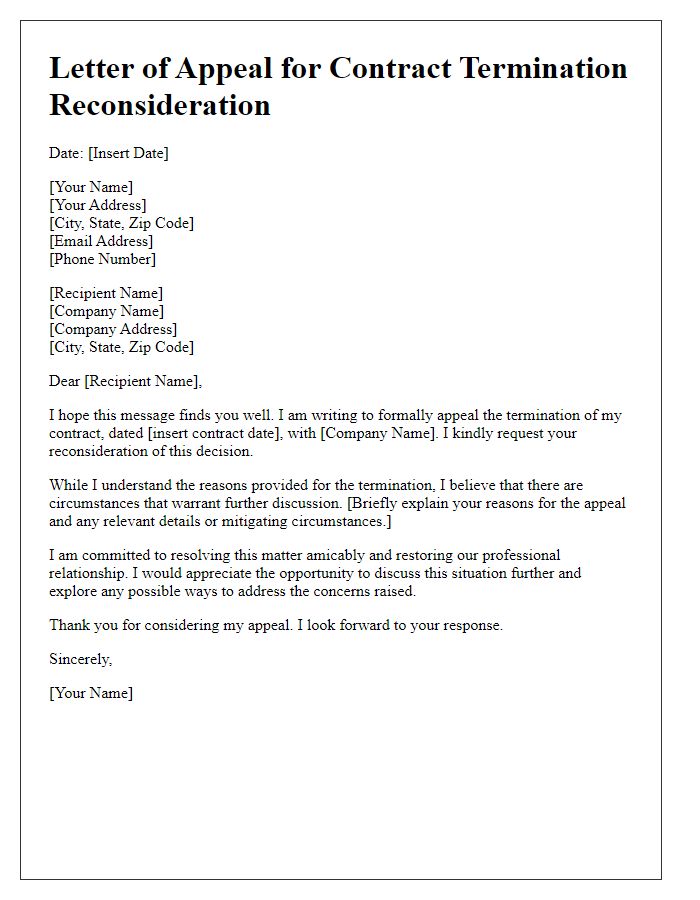
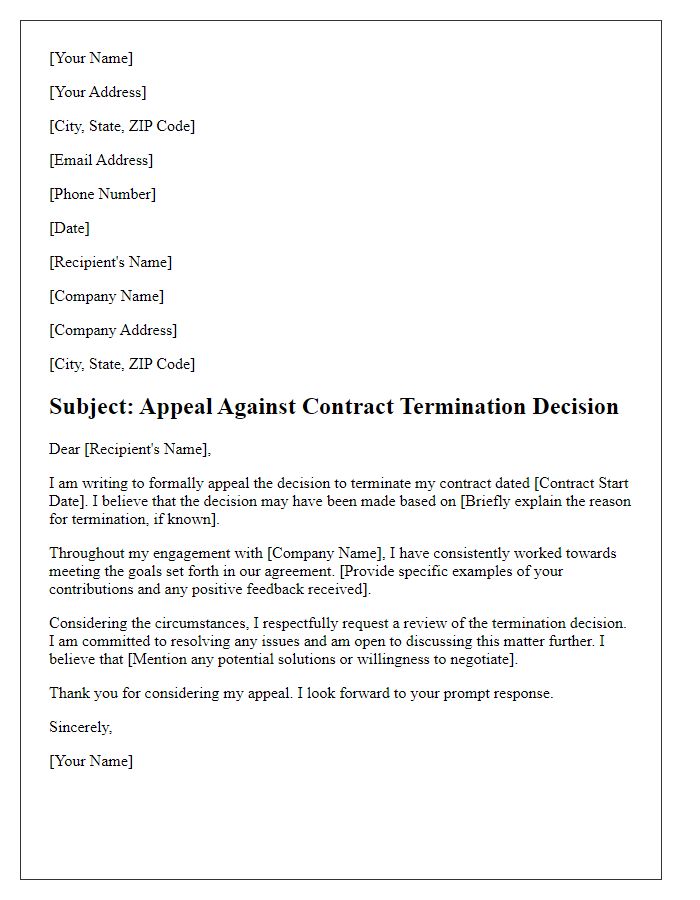
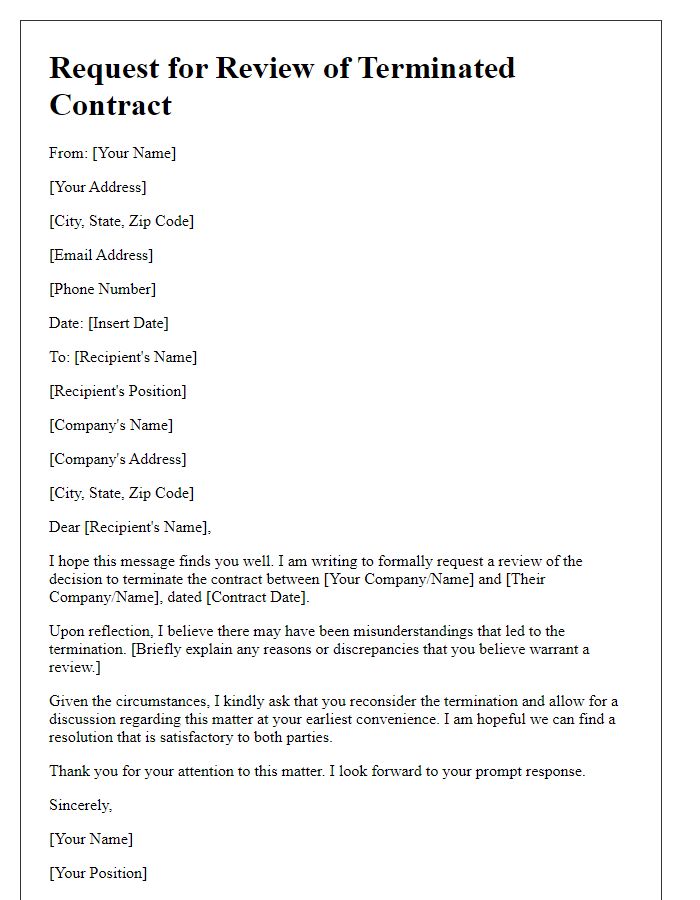
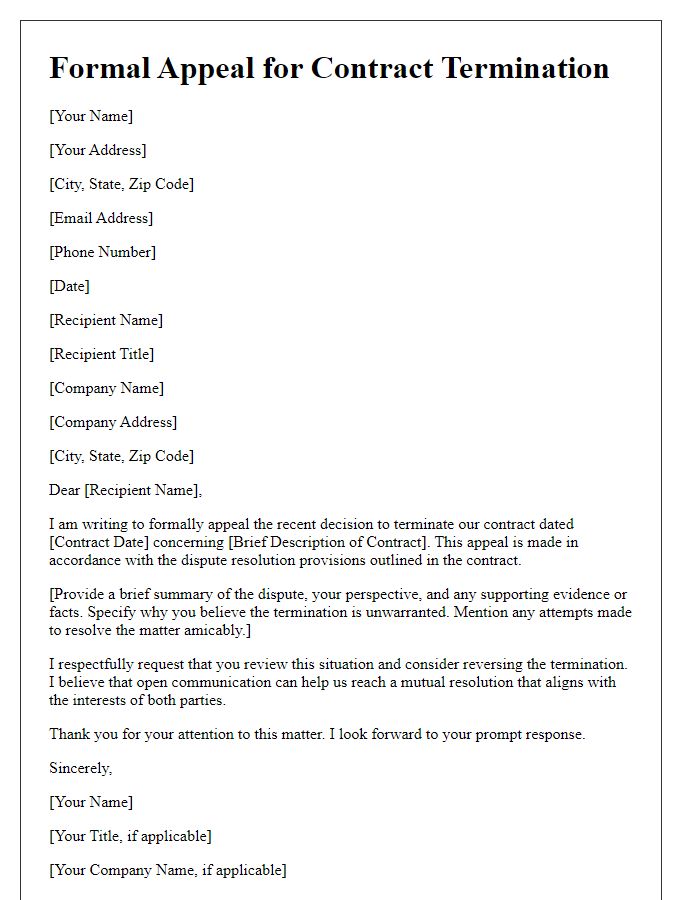
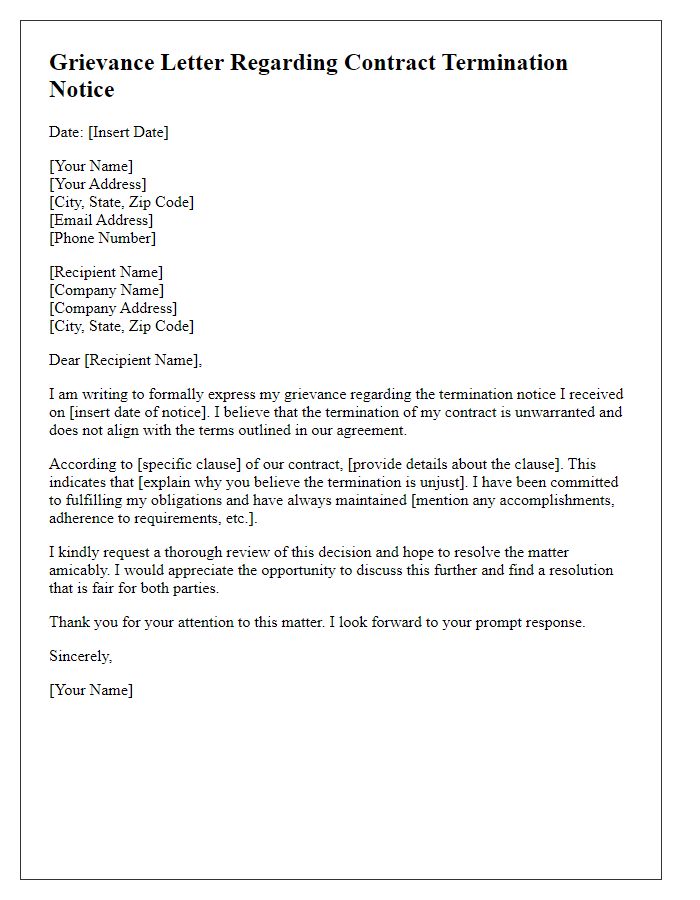
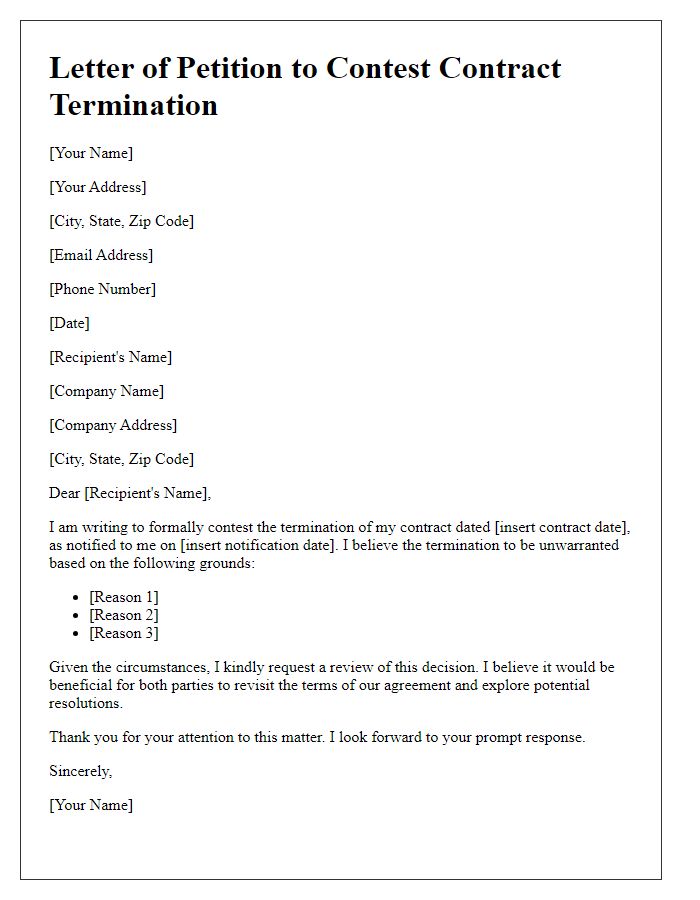
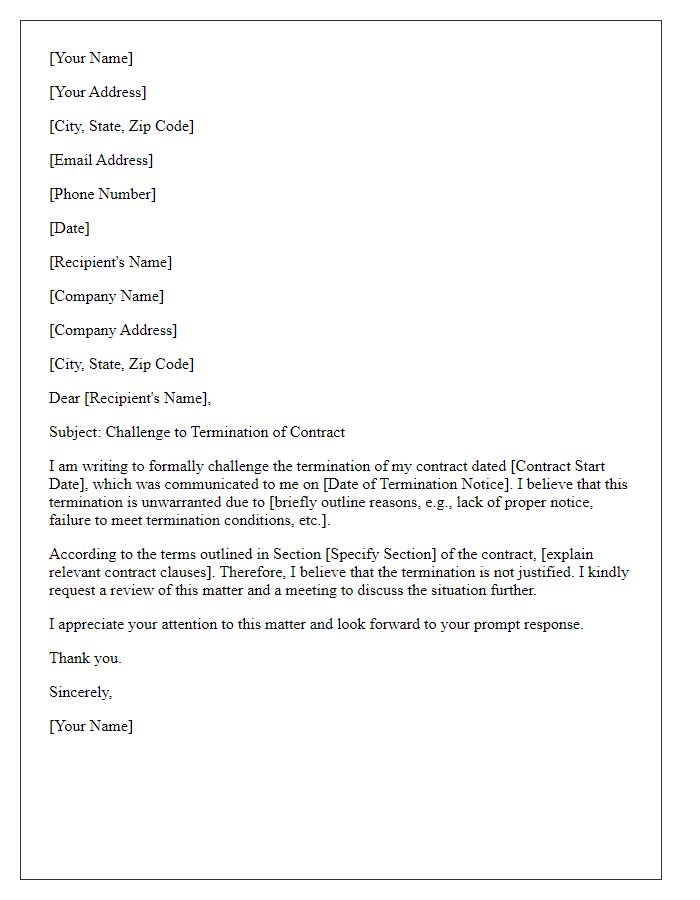
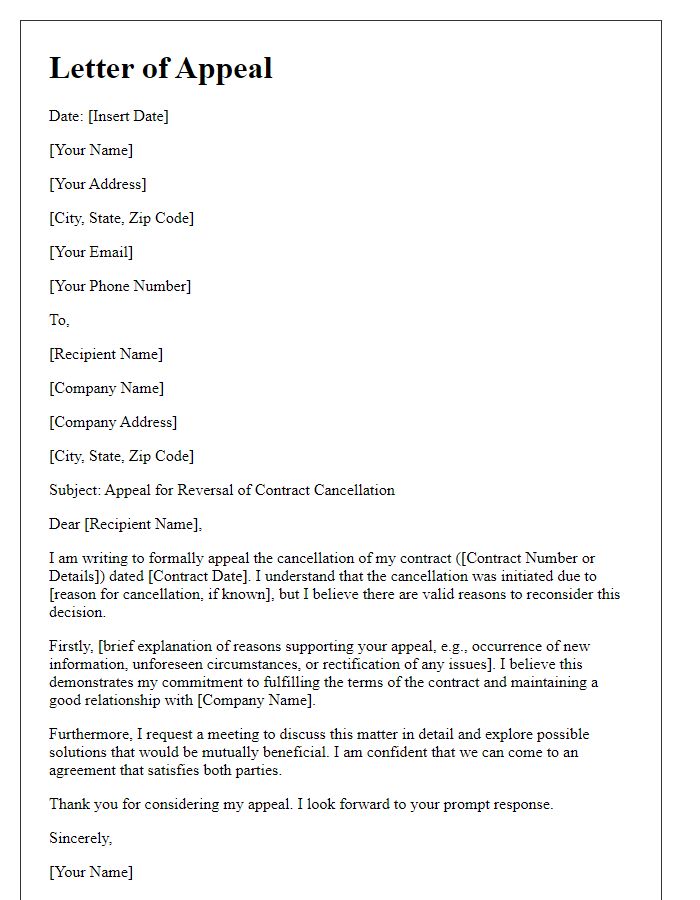
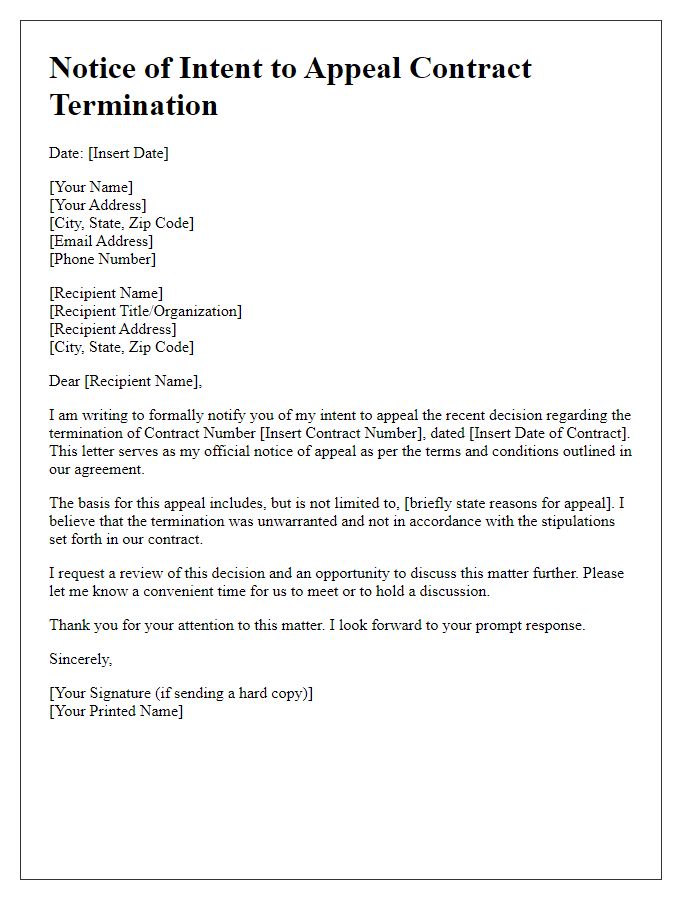
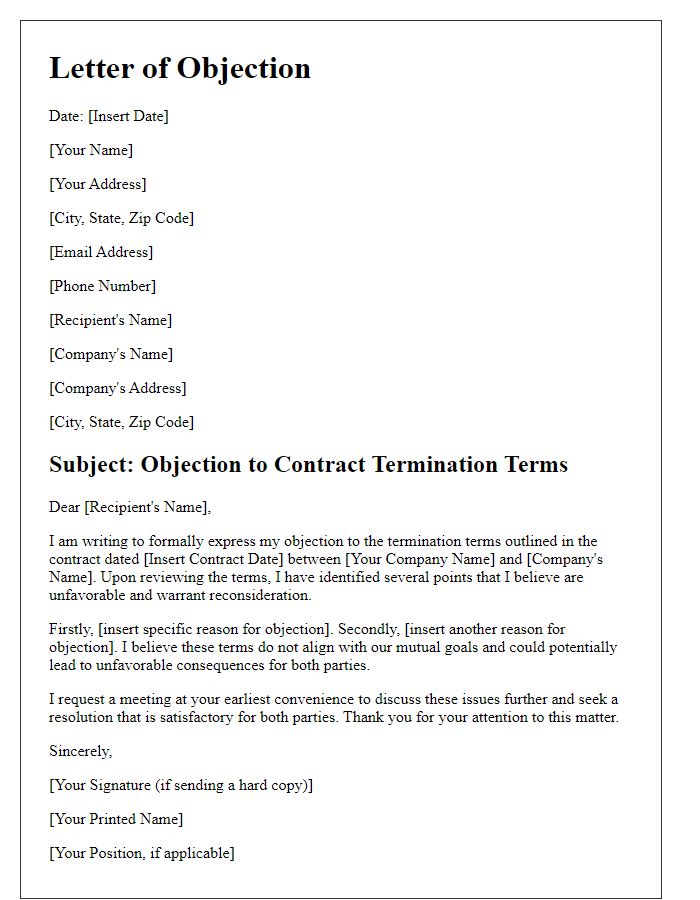


Comments